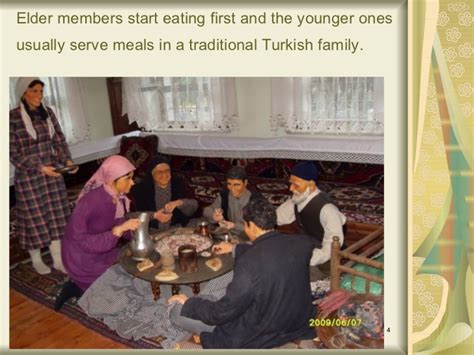When it comes to expressing gratitude after a meal, Turks have a unique way of expressing it. Some of the phrases you will hear after a meal in Turkey are “Çok Teşekkür ederim”, “İyi Akşamlar”, “Afiyet Olsun”, and “Sağlıkla”. Here is a translation of what each phrase means.
Çok Teşekkür ederim: Thank you very much.
İyi Akşamlar: Have a good evening.
Afiyet Olsun: Bon appetit or enjoy your meal.
Sağlıkla: May it be healthy.
These phrases are usually said before, during, and after a meal. But, most often, they are used when thanking the host of the meal for their hospitality.
In addition to these phrases, Turks also have a unique gesture to express their gratitude. It is known as “hayırlı olsun” and involves clapping your hands together. This gesture is used to express your appreciation for the meal and to wish the host a pleasant evening.
So, next time you’re in Turkey, make sure you remember these phrases and gestures so you can thank the host of the meal in the traditional Turkish style.
Exploring the Etiquette of Turkish Post-Meal Comments
You may have noticed that after meals, many Turks say some special phrases. As a foreigner in Turkey, it is helpful to know the local etiquette. After all, it can be a difficult language to learn, and understanding these phrases will help you to fit right in with the locals.
In Turkish, post-meal comments are known as “sofra sonu”. They are typically used to thank the person who cooked the meal or the host. These phrases are usually said by the person who ate the meal. They can also be used to express appreciation for the food.
The most common phrase used to thank the cook or host is Çok teşekkür ederim. This literally means Many thanks. Other phrases include Çok güzel, çok lezzetli, which means Very beautiful, very delicious and Çok iyi pişmiş which translates to Very well cooked.
Another phrase which is commonly used is Yemeğinizi çok sevdik which means We loved your meal. This phrase is often used when the meal is particularly impressive. It is also a way to express appreciation for the effort that went into making the meal.
The phrase Afiyet olsun can also be used. This literally translates to Bon appetit, and can be used to wish someone a pleasant meal. It is a polite way to show you care about the other person.
Finally, Yemeğinizi çok beğendik is a phrase which means We liked your meal a lot. This phrase is not used as often as the other phrases but can be used to express appreciation for a particularly tasty meal.
Overall, understanding the etiquette of Turkish post-meal comments is a great way to show respect to the person who cooked the meal or the host. Knowing the phrases will also help you to fit in with the locals and gain a better understanding of the local culture.
Common Turkish Phrases Used After Eating a Meal
Eating is an important part of Turkish culture and customs. After having a meal, people typically use certain phrases to express their satisfaction and gratitude for the food.
One of the most common phrases people use is Afiyet olsun, a phrase that translates to may it be delicious. It is typically said by the person who prepared the meal, to the person who is eating it. The person eating the meal usually responds with tesekkur ederim, which means thank you.
Another common phrase is güzel bişeyler yiyeledik, which translates to we ate something nice. This phrase is usually used after a particularly enjoyable meal, to express the pleasure of having eaten something tasty.
Finally, the phrase tamam, which translates to it’s all good, is often used when someone has finished their meal. This phrase can be used to tell the person who cooked the meal that the meal was enjoyed. It implies that the meal was satisfactory.
These phrases are used in many different contexts, from casual meals with friends to more formal meals with family. They are a part of the language and culture of Turkey, and using them is a great way to show appreciation for a meal.
In Turkish culture, it is customary to thank whoever cooked or served the meal by saying Elinize sağlık which translates to health to your hands.
The Turkish equivalent of bon appetite is Afiyet olsun, which translates to may it be delicious.
It is customary to say something after eating, but it is not always done.
In Turkish culture, it is customary to express gratitude for the meal with the phrase Elinize sağlık which translates to health to your hands.
Elinize sağlık translates to health to your hands.
No, there are other phrases that are used after eating in Turkish culture, such as Afiyet olsun which translates to may it be delicious.
Elinize sağlık is pronounced eh-LEE-nez-eh sahl-LUH-k in Turkish.
Afiyet olsun translates to may it be delicious in English.
Elinize sağlık is used to express gratitude for the meal, while Afiyet olsun is used to wish someone a delicious meal.
Yes, there are other phrases used in Turkish culture after eating, such as Şükürler olsun, which translates to thank you.

